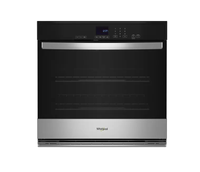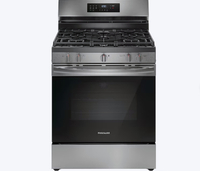Wall oven vs range: what's the difference, and which is right for you?
Should you buy a wall oven or a range? We sought out expert advice on the key differences you should know before you buy.
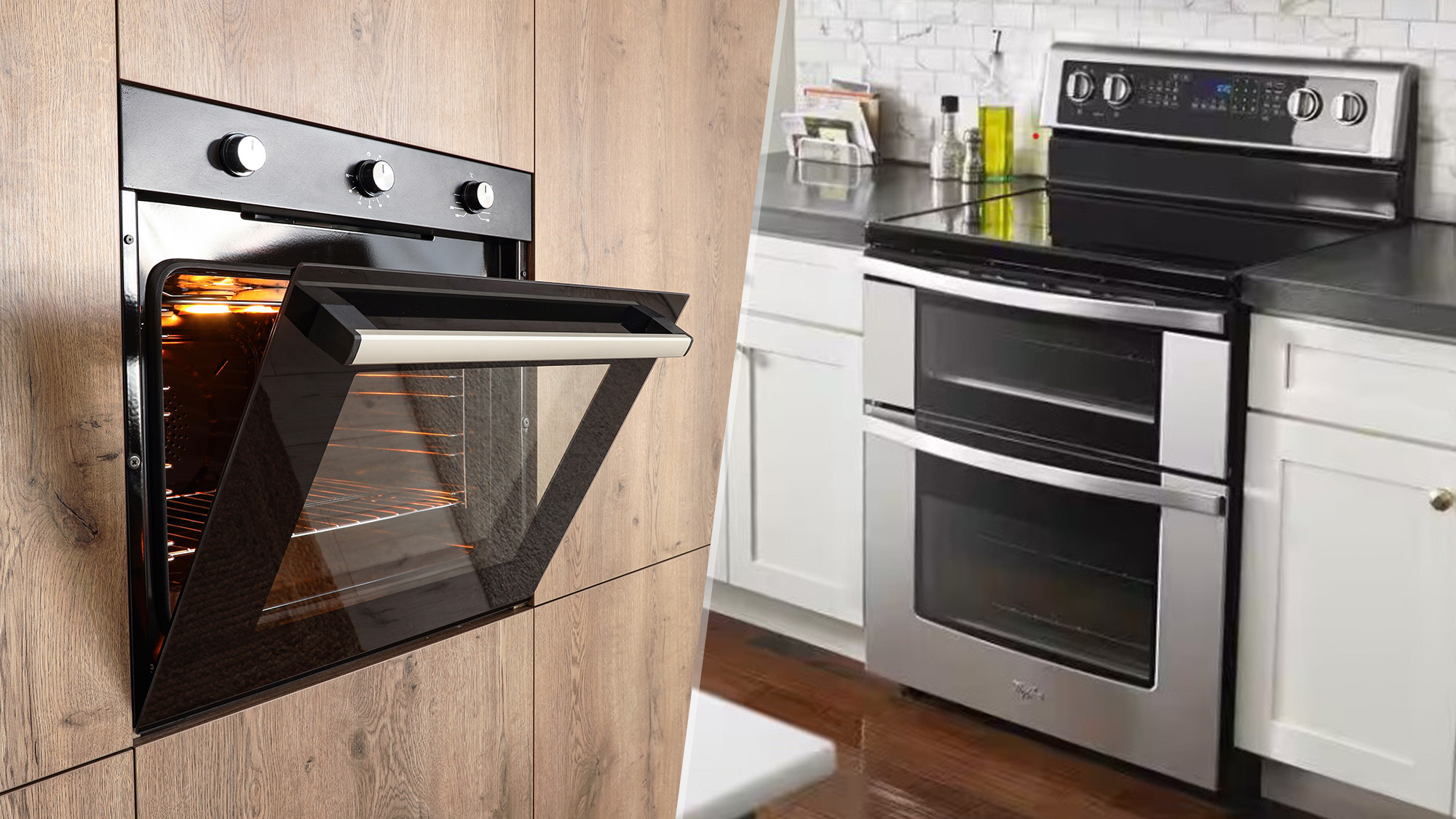
Whether you're completely remodeling your kitchen or looking to replace your 10-year-old appliance, you might be confused by your options when shopping for a new oven. One choice you might need to make is between a wall oven and either an electric range or gas range, but what’s the difference between these two types of ovens, exactly?
Both allow you to bake, roast, and broil food in one appliance. However, the two have specific differences you should know when deciding which is right for you. We spoke to three kitchen appliance experts to get the low down on wall ovens vs. slide-in ranges so you can make the right choice for your home.
What is a wall oven?
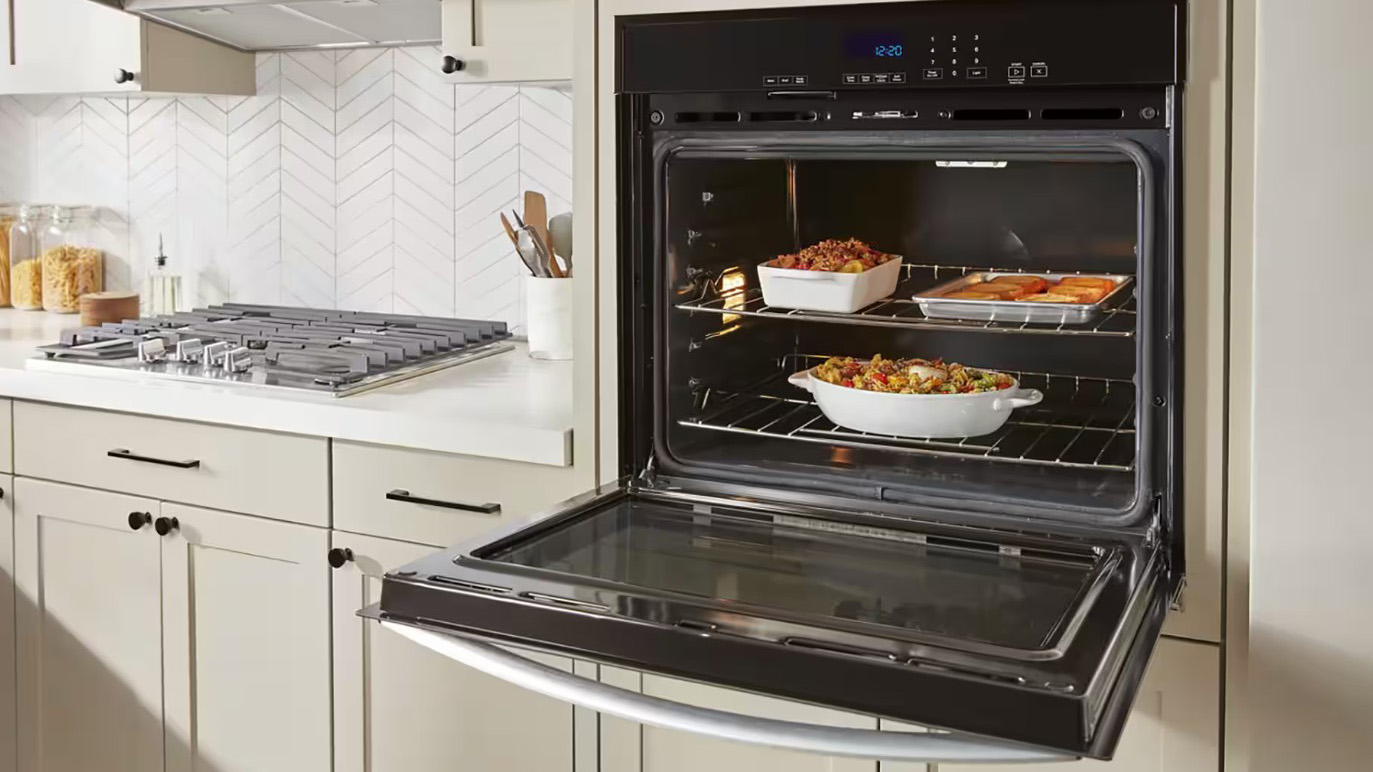
A wall oven is built into the kitchen cabinetry on the wall rather than installed on the floor between cabinets. This installation process gives the wall oven a streamlined look that blends in with the cabinetry and works well in a built-in kitchen design.
“A wall oven is just an oven installed into cabinetry at a convenient height,” says Glenn Lewis, president of Mr. Appliance, a Neighborly company. Wall ovens can be installed at any height you choose. The higher oven height can significantly benefit those who have trouble bending down to remove a dish or baking sheet from a traditional oven.
“[Wall ovens] free up valuable floor space and are located at a convenient height that reduces bending and offers easy access to dishes and appliance controls,” explains Gerrod Moore, integrated brand manager at Maytag Kitchen. “[They] offer a variety of features [such as] a keep warm setting, delay start, self-cleaning, and air frying. Double wall ovens, in particular, also offer larger capacities of almost 10 cubic feet.” This versatility makes wall ovens a popular pick for many homeowners who are redoing their kitchens.
“Wall ovens allow for more flexibility in kitchen design”
“Wall ovens allow for more flexibility in kitchen design,” says Whirlpool Kitchen brand manager Bree Lemmen. “Consumers can customize with different configurations to fit their needs, such as a single or double oven, selecting their desired height, or spacing out from their cooktop to create separate work zones.”
However, if budget is a concern, you might need to cross wall ovens off your list. “Wall ovens may cost more, as they do not contain a cooktop and require a separate installation,” explains Lemmen. Wall ovens are usually electric, so they might not be the best choice if you want a gas appliance.
This electric wall oven is $600 off at Best Buy, and features Keep Warm, Broil and Bake settings, as well as a self-clean and steam cycle.
What is a range?
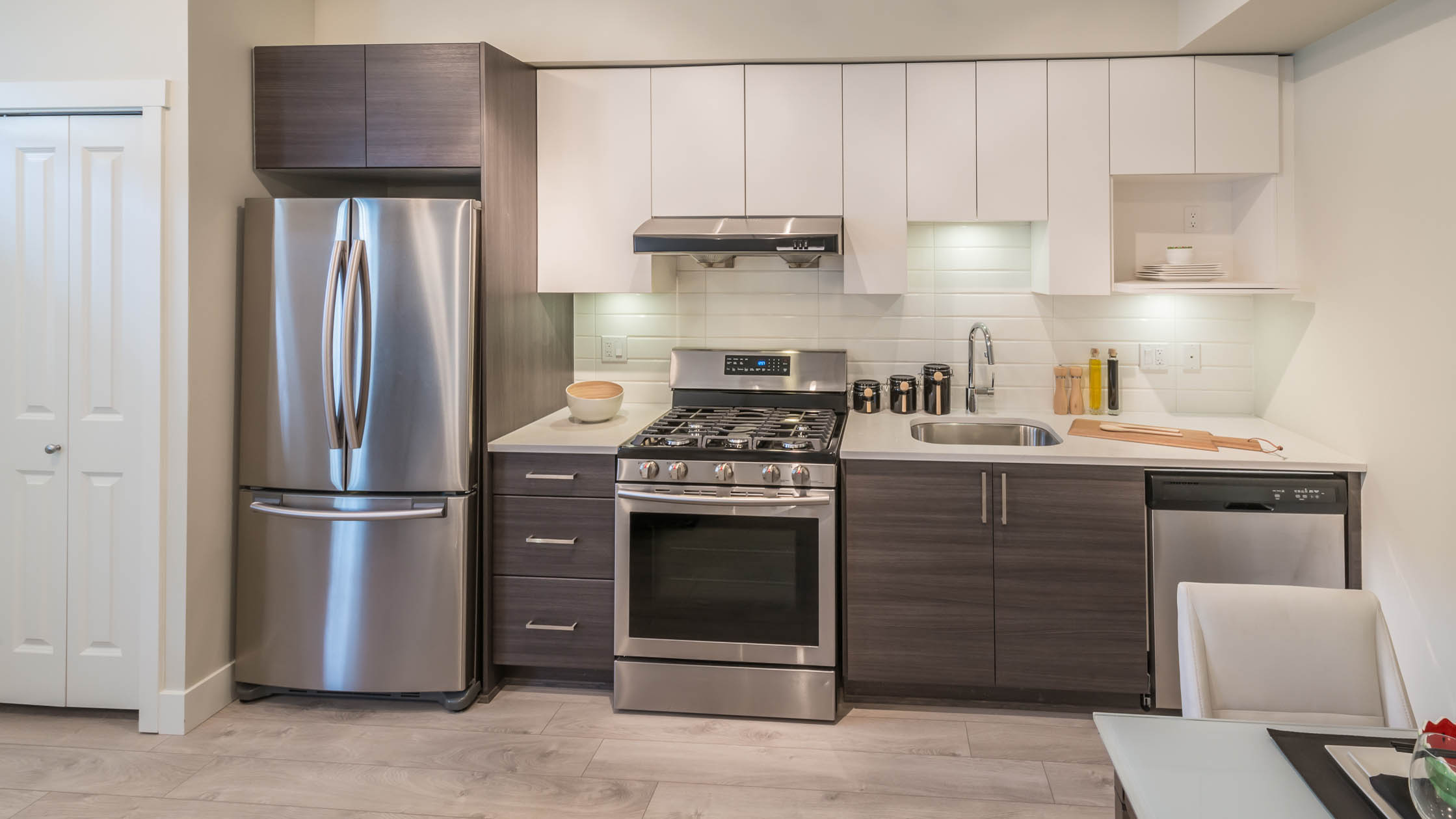
There are two types of range: slide-in and freestanding. A slide-in range is similar to a freestanding range. But while a freestanding range can slot in wherever there’s room (or be installed as a standalone appliance), a slide-in range is installed to sit flush with the countertop to create a more seamless look. As Moore explains, “A slide-in range is designed or installed to sit on the floor and fit between cabinets or other kitchen appliances,” and create a built-in look without actually being built in.
“[A] range combines an oven and cooktop into one unit, and the slide-in version slides into a cabinet that matches your kitchen cabinetry,” Lewis agrees. Having the cooktop and oven in one appliance can save space and allow you to keep all your cooking within the same area of the room. “Slide-in ranges offer the benefits of an all-in-one appliance,” says Moore. “They are an economical, space-saving option that streamlines the cooking experience and offers a simple, single appliance installation.”
“Slide-in ranges can offer more aesthetic value and style,” Lemmen adds. “They feature an array of cooking controls displayed on the front of the appliance, making them a practical choice for installation in kitchen islands or between cabinets with decorative backsplash walls. They are also available in a variety of fuel options, including electric, gas, and dual fuel.”
Our top pick of the best budget-friendly gas ranges, the Fridigaire FCRG3083AS features an air fry setting and has five cooking zones on its gas stove.
Wall oven vs. range: which is better?
Price
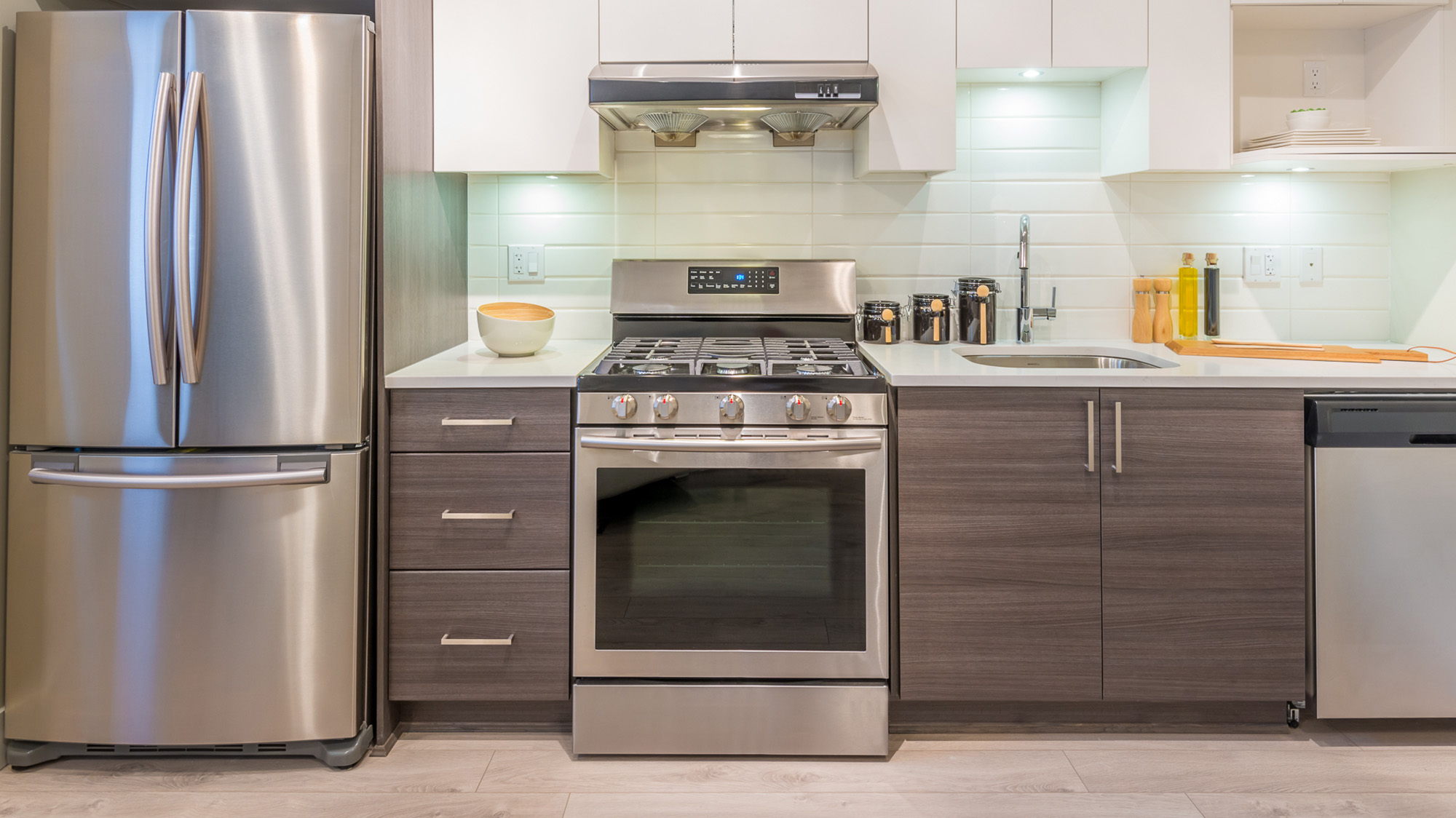
A new oven can be a significant expense—but some ovens are more expensive than others. Regarding price, slide-in ranges are typically more affordable than wall ovens.
“Ranges can be more cost-effective than a wall oven,” Moore explains. “For example, a Maytag range can span around $800 to $2100, whereas a Maytag wall oven can span around $1900 to $3200.”
Features
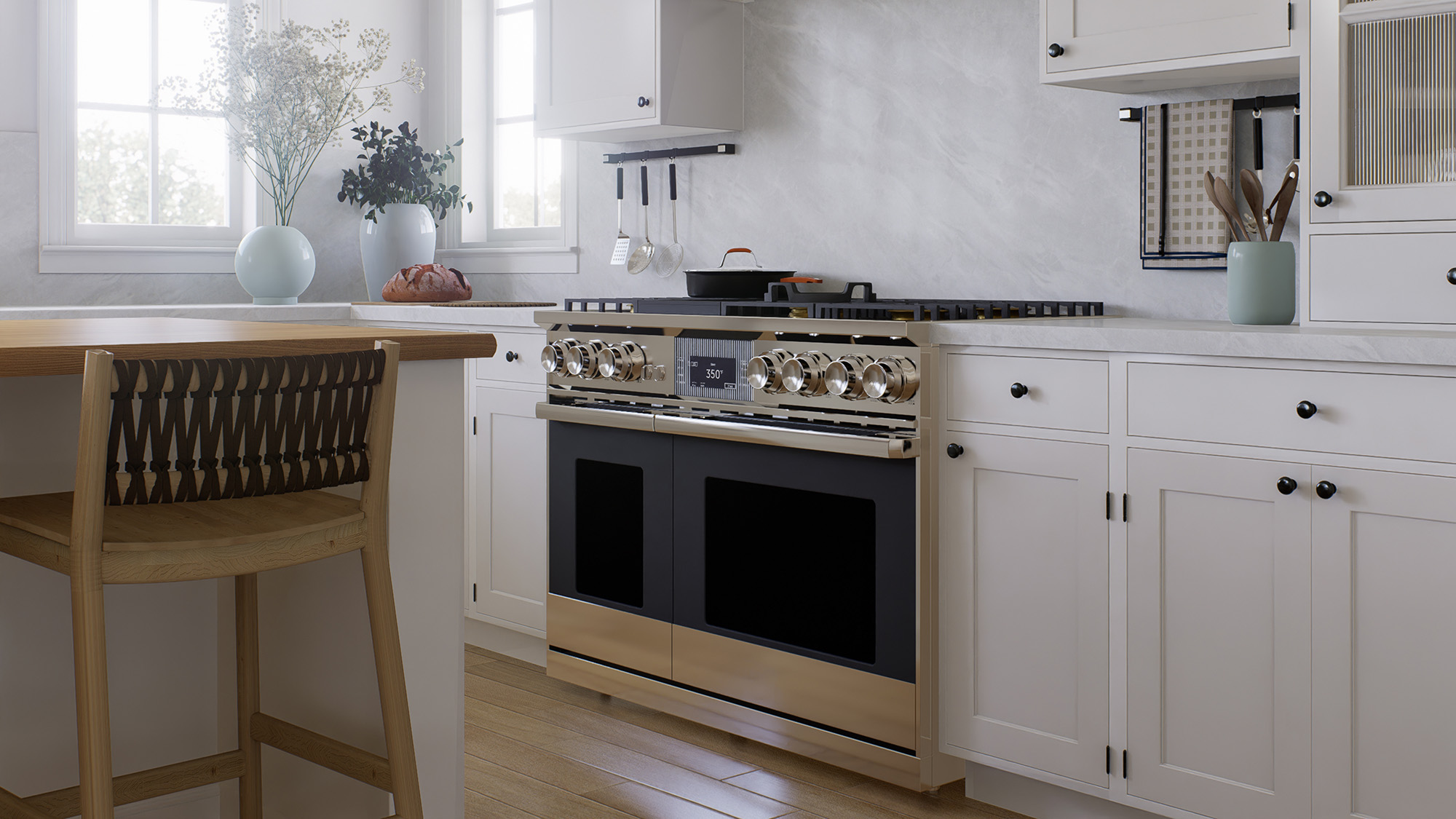
Wall ovens and ranges share numerous features, including the ability to bake, roast, and broil. But ranges also have a cooktop where you can fry, sautee, and boil food.
“You will need a separate cooktop [with a wall oven], which will take up some counter space,” says Lewis. Installing a separate cooktop can also increase the overall price you pay for installation.
Size and versatility
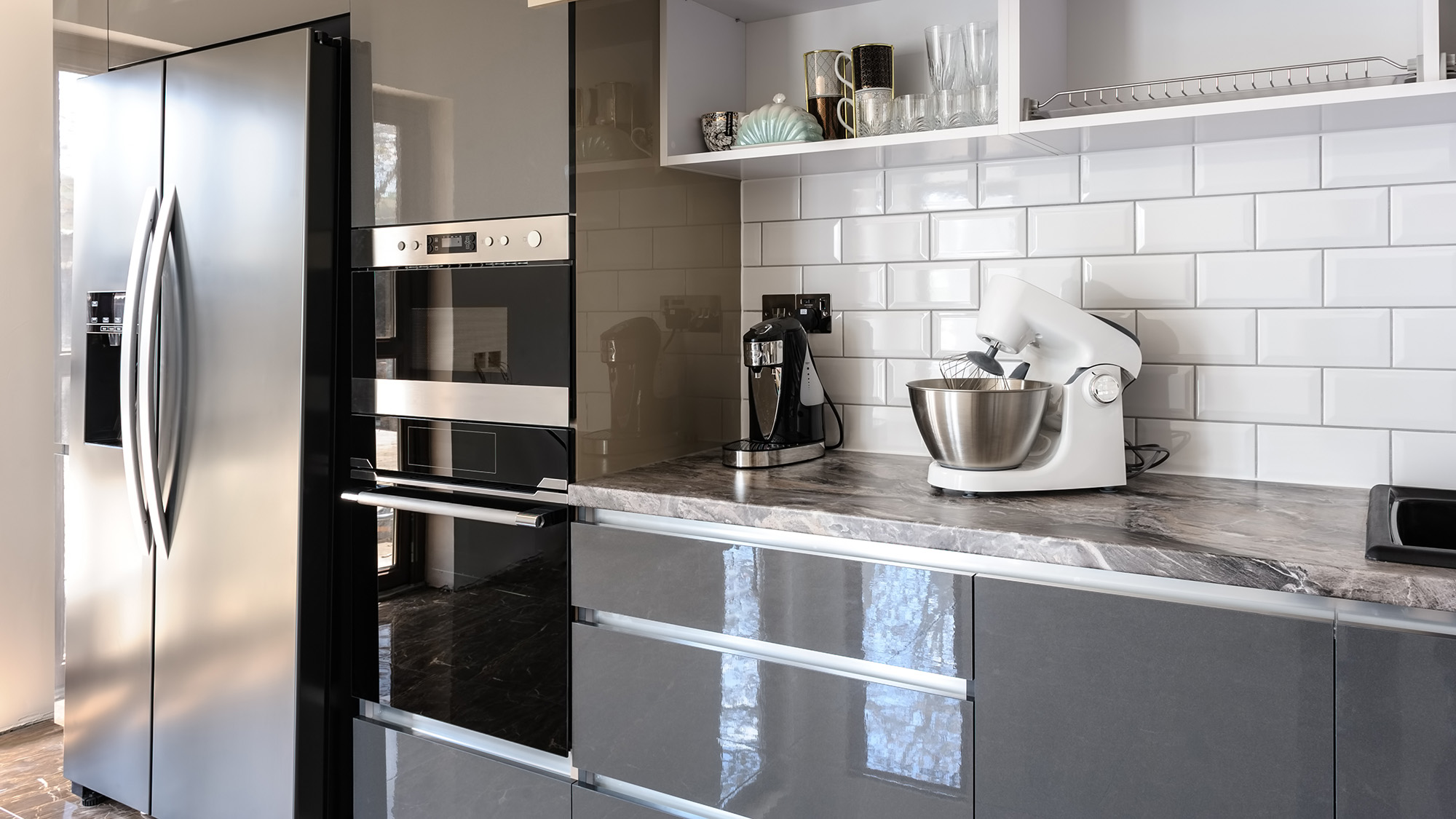
Consider cooking capacity when you’re shopping around for a new oven. If you frequently cook and bake complicated recipes, you might need a larger oven. In this case, a wall oven might be the better option since you can install a second one and have double the oven space.
However, a range could be the better choice if space is a concern. “A range can be better for smaller spaces as it concentrates cooking appliances to one spot,” says Moore. “If you cook with others, consider a wall oven to create space, allowing one person to sear, saute, or boil on the cooktop while the other attends to dishes in the oven.”
Looks
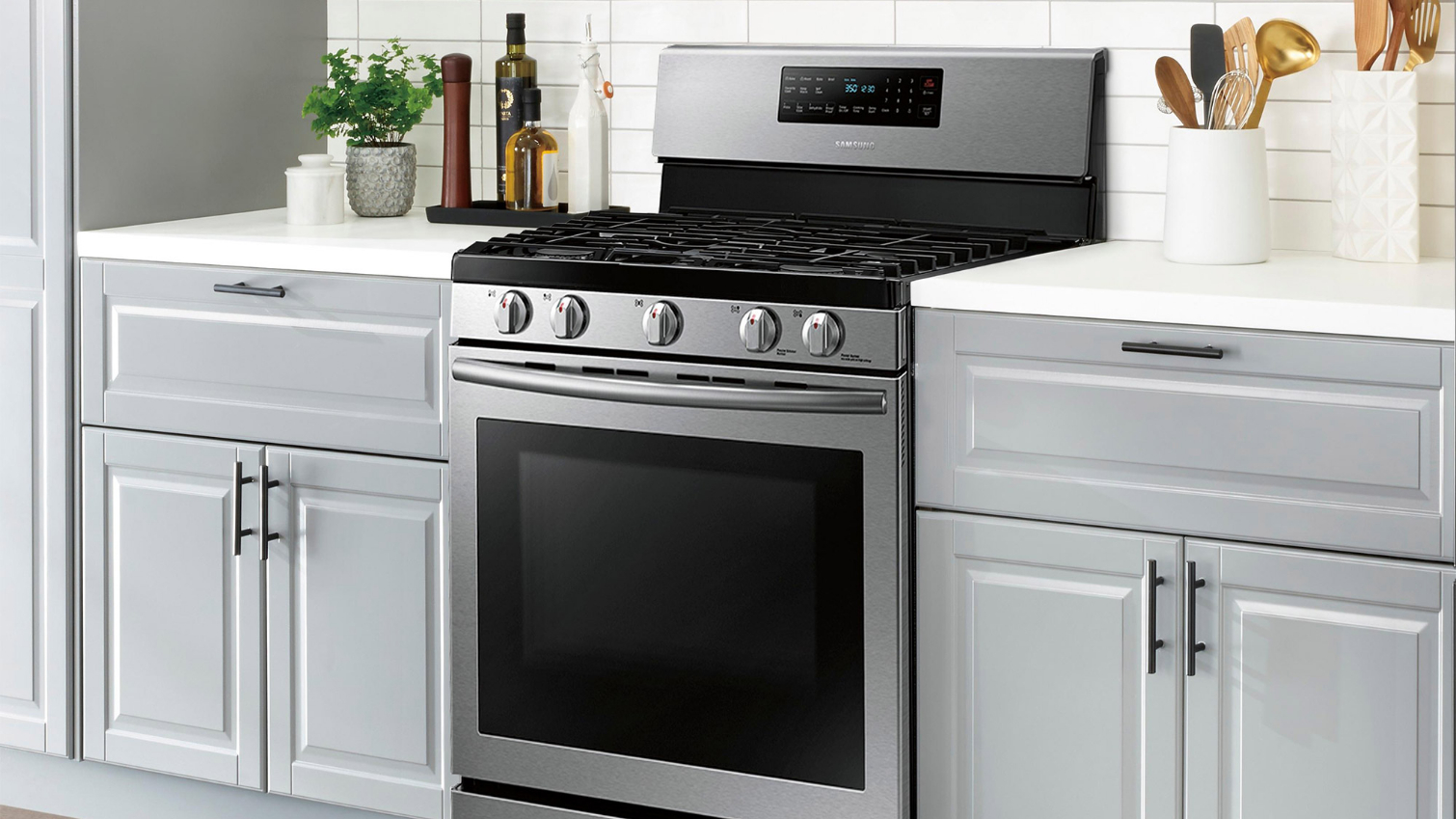
Wall ovens offer a sleek look that blends effortlessly into your cabinetry. A slide-in range can also integrate with your countertops and cabinetry. Ultimately, deciding which design you prefer will depend on your style preferences.
Some people prefer the built-in look of a wall oven with a separate cooktop. Separating the two makes it easier for multiple people to cook in the kitchen simultaneously. Others want their oven and cooktop to be together—or they might not like the built-in design of a wall oven.
Installation
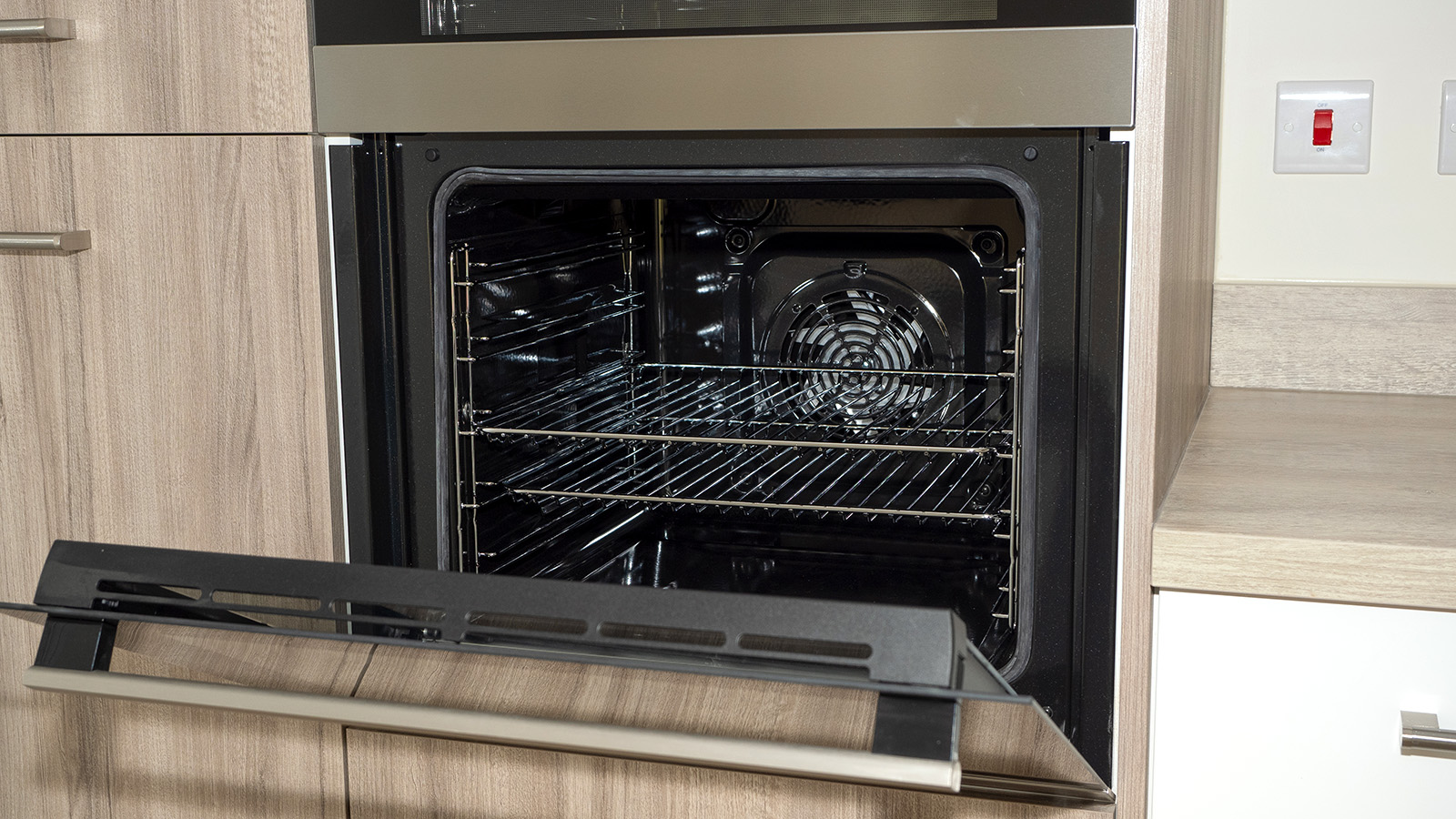
Installing a slide-in range is relatively easy and can often be done by a handy homeowner who is comfortable with basic DIY. Installing a wall oven is trickier and usually requires a pro, which can add to the overall cost. Wall ovens must be hardwired into the home’s electrical system, whereas ranges typically plug into an existing outlet.
Also, consider your current kitchen setup since installation difficulty will differ depending on whether you currently have a range or a wall oven. “If customers have a freestanding kitchen with a range, they have the ability to upgrade to a slide-in range,” explains Lemmen. “If customers have a built-in kitchen with a wall oven and cooktop, they likely cannot facilitate a slide-in range unless they are considering remodeling the kitchen.”
Maintenance
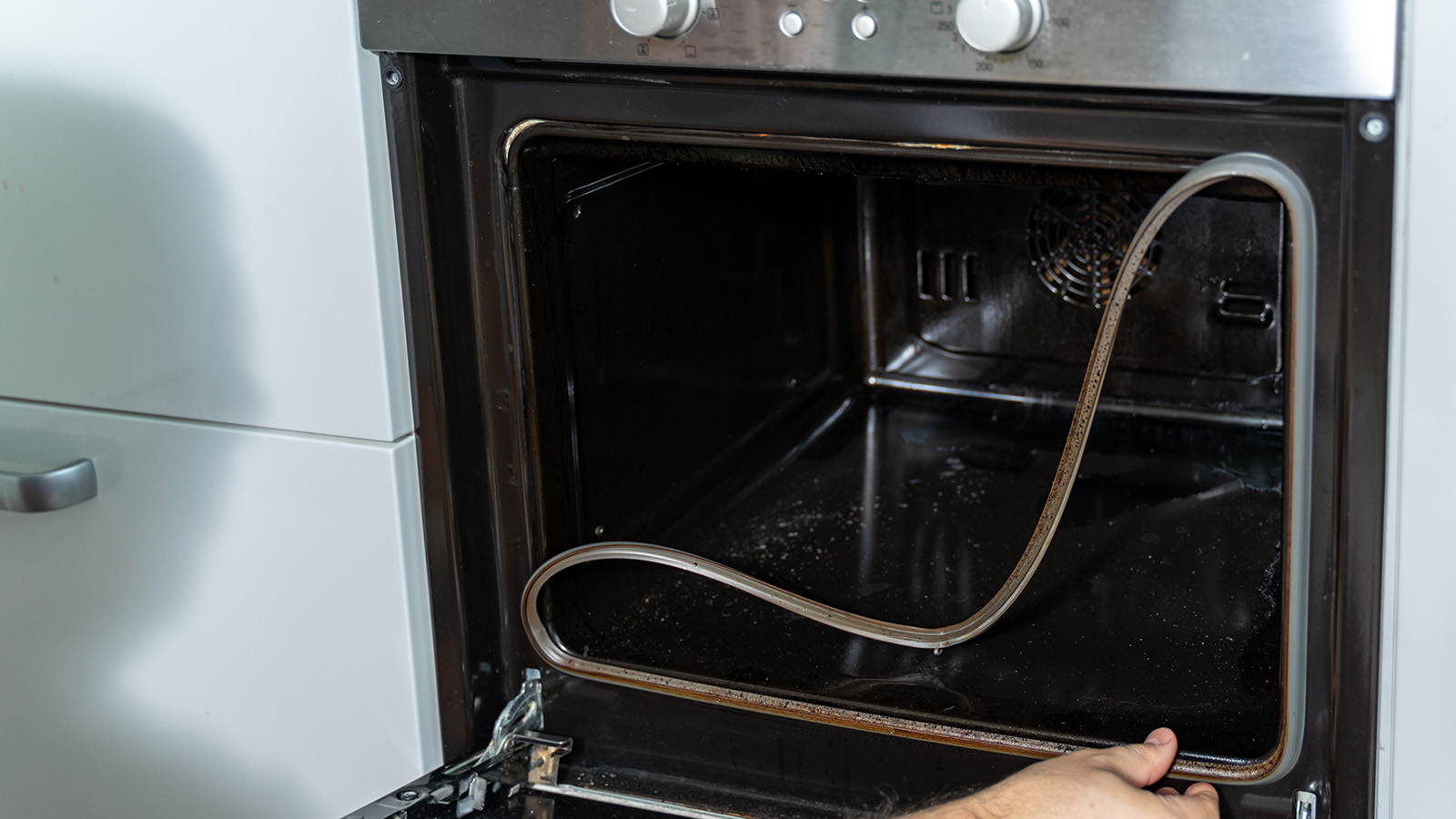
A freestanding range is relatively easy to repair and maintain since it can slide out of its position in the kitchen to allow access to all four sides. Maintenance might not be as easy with a slide-in range—but it will undoubtedly be much more complex with a wall oven.
Because wall ovens are built into the cabinetry, removing them for repairs is much more labor-intensive. And if your repair technician recommends replacing your wall oven, you’ll need to find a new unit that fits precisely into the space where your old unit sat, limiting your overall options.
Verdict
A wall oven is the better choice if you are installing a built-in kitchen and want your appliances to blend in seamlessly with your cabinetry, countertops, and hardware. Wall ovens are also better options if you don’t like bending down to access your oven. However, slide-in ranges are the more affordable option and work in almost any kitchen—plus, they include a stovetop, so you don’t have to install one separately like you would with a wall oven.
More from Tom's Guide
Sign up to get the BEST of Tom's Guide direct to your inbox.
Get instant access to breaking news, the hottest reviews, great deals and helpful tips.

Catherine Hiles has over a decade of experience writing and editing on various topics, including home improvement, personal finance, home finances, pet ownership, and parenting. Her work has been featured on BobVila.com, TIME Stamped, The Penny Hoarder, and more. In her spare time, Catherine enjoys running, reading, spending time with her kids and dogs, and tackling projects around the house.
